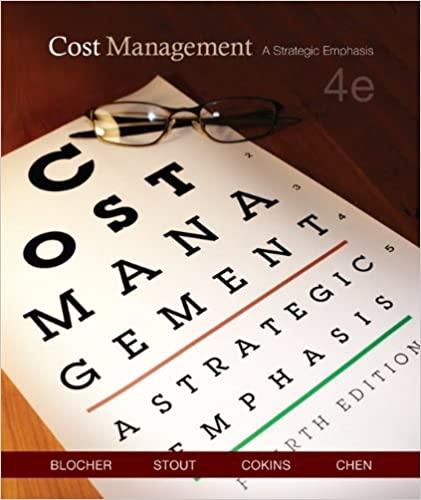Question
Denis is the audit senior in charge of the current-year audit of Bell Inc., a cable television provider serving customers in small towns and rural
Denis is the audit senior in charge of the current-year audit of Bell Inc., a cable television provider serving customers in small towns and rural areas. Its shares are privately held, but it issued a 20-year bond eight years ago to the public. The bond contains restrictive covenants, which include requirements for Bell to maintain a current ratio of at least 2:1 at each fiscal year-end, and pretax earnings that are at least 10 times long-term debt interest charges. To meet this debt covenant restrictions, no bonuses were paid to management in the prior year. If the covenants are violated, the bondholders have the right to demand repayment, raise the interest rate, and/or liquidate the company. In recent years, Bell has seen very little growth from new customer installations because most people are now choosing wireless service instead of cable. At the same time, Bells existing installed customer base has been shrinking because many have switched to wireless for more content and lower costs. As a result of these changes in its operating environment, Bell has been close to violating its restrictive covenants in the past two years.
While scrutinizing a 300-page printout of the general journal entries for the year Denis noticed 10 journal entries in a row in the middle of November that debit account #22000 (current accrued liabilities) and credit account #54400 (other operating income). The entries are all for different immaterial amounts, but all are to the same two accounts, and all have the same explanatory note: to adjust accrued liabilities as per instruction memo of November 2.
Why performing analytical procedures as part of his audit of the revenue and expense accounts of Bell, Denis noted that Bell sales revenues in the current year have increased by 20% over the prior year. When he discussed the current year sales figures with the sales manager, she informed him that Bell had increased its prices by 50% in the third quarter of the current year to offset the lower sales volumes. During this discussion, the chief accountant was passing by and, overhearing this topic made the following comment: note that the accounts receivable balance is also much higher than last year, which is totally consistent with the higher sales. This should tie together your analysis, so your audit work on sales and accounts receivable must now be complete.
You are Veronica, the audit manager for the audit of Bell and denis has sent to you his preliminary findings. You have been aware through various conversations with management that there is now a new CEO and an extreme focus on maximizing profits. The attitude toward compliance with accounting regulations has changed with greater emphasis on pleasing the CEO.
You find that due to the significant change of the tone at the top, you should prepare a report about the risk of fraud at Bell and its implications for the audit in preparation for the fraud-risk brainstorming session scheduled with the rest of the audit team next week. You decide to apply the concepts you learned during a recent training seminar about fraud detection offered to all the audit managers where you learned about the fraud triangle framework and fraud warning signs.
Question: Apply the Macdonald methodology
Step by Step Solution
There are 3 Steps involved in it
Step: 1

Get Instant Access to Expert-Tailored Solutions
See step-by-step solutions with expert insights and AI powered tools for academic success
Step: 2

Step: 3

Ace Your Homework with AI
Get the answers you need in no time with our AI-driven, step-by-step assistance
Get Started


